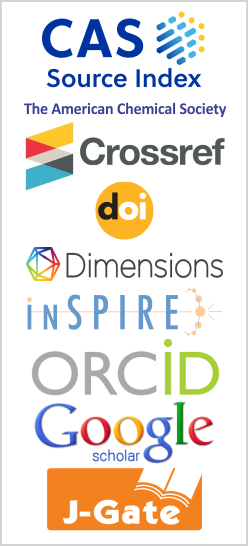Ultracold Rubidium Atoms Excited to Rydberg Levels
DOI:
https://doi.org/10.26713/jamcnp.v2i3.336Keywords:
Ultracold atoms, Rydberg collective excitations, Dipole blockade, Counting statistics, Sub- and super-Poissonian distributionsAbstract
Ultracold atomic gases excited to strongly interacting Rydberg states are a promising system for quantum simulations of many-body systems. The dipole blockade of Rydberg excitations is a hallmark of the strong interactions between atoms in these high-lying quantum states. We have measured the Rydberg excitation for rubidium ultracold atoms in magneto-optical traps and for Bose-Einstein condensates loaded into quasi one-dimensional traps. One of the consequences of the dipole blockade is the suppression of fluctuations in the counting statistics of Rydberg excitations. We have obtained experimental results on the dynamics and the counting statistics of Rydberg excitations of ultra-cold Rubidium atoms both on and off resonance, which exhibit sub- and super-Poissonian counting statistics, respectively. We have found strongly bimodal counting distributions in the offresonant regime.Downloads
References
N. Malossi, M. M. Valado, S. Scotto, P. Huillery, P. Pillet, D. Ciampini, E. Arimondo and O. Morsch, Full counting statistics and phase diagram of a dissipative Rydberg gas, Phys. Rev. Lett. 113 (2014), 023006.
M. Viteau, M. G. Bason, J. Radogostowicz, N. Malossi, D. Ciampini, O. Morsch and E. Arimondo, íƒ'Rydberg excitations in Bose-Einstein condensates in quasi-one-dimensional potentials and optical lattices, Phys. Rev. Lett. 107 (2011), 060402.
M. Viteau, P. Huillery, M. G. Bason, N. Malossi, D. Ciampini, O. Morsch, E. Arimondo, D. Comparat and P. Pillet, Cooperative excitation and many-body interactions in a cold Rydberg gas, Phys. Rev. Lett. 109 (2012), 053002.
Downloads
Published
How to Cite
Issue
Section
License
Authors who publish with this journal agree to the following terms:- Authors retain copyright and grant the journal right of first publication with the work simultaneously licensed under a CCAL that allows others to share the work with an acknowledgement of the work's authorship and initial publication in this journal.
- Authors are able to enter into separate, additional contractual arrangements for the non-exclusive distribution of the journal's published version of the work (e.g., post it to an institutional repository or publish it in a book), with an acknowledgement of its initial publication in this journal.
- Authors are permitted and encouraged to post their work online (e.g., in institutional repositories or on their website) prior to and during the submission process, as it can lead to productive exchanges, as well as earlier and greater citation of published work.




